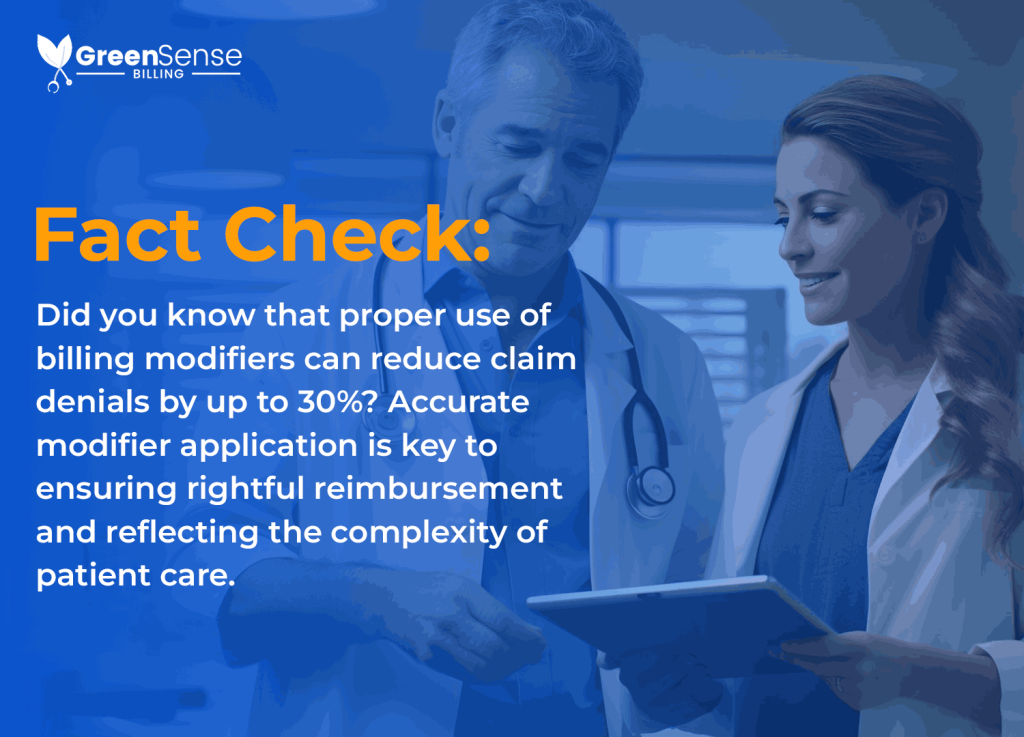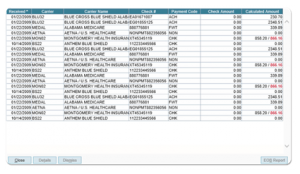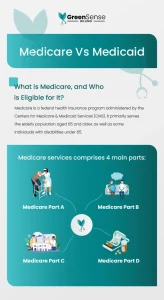The Q7, Q8, and Q9 are specific podiatry billing modifiers used in the healthcare industry to provide additional information about the services rendered to patients.
These modifiers are part of the Healthcare Common Procedure Coding System (HCPCS) and are used on claims to indicate specific conditions or scenarios that affect the billing and reimbursement process.
Understanding Modifiers Q7, Q8, and Q9
Let’s break down what each of these modifiers means and when to use them.
Q7 Modifier
This modifier is used to indicate one class A finding.
Class A findings typically involve one or more non-traumatic lower extremity abnormalities due to diabetes or other conditions. Such as peripheral neuropathy with evidence of callus formation, peripheral vascular disease with changes in skin texture or temperature, or foot deformity.
This modifier helps in indicating that the service provided is related to managing a specific condition impacting the lower extremities.
Q8 Modifier
Modifier Q8 is used when a patient has two systemic conditions affecting their foot health.
This could include combinations like diabetes and arterial disease or rheumatoid arthritis and venous stasis.
The presence of two systemic conditions typically requires even more specialized care, and modifier Q8 helps convey the necessity of such care to payers.
Q9 Modifier
Finally, modifier Q9 is used when a patient has three or more systemic conditions impacting their foot health.
This signifies an even higher level of complexity in care, reflecting the increased risk and potential for complications in treatment.
Accurate use of Q9 ensures that the extensive resources and expertise required to manage these patients are recognized and reimbursed accordingly.
Importance of Accurate Modifier Use

The accurate use of modifiers in medical billing, including those in podiatry, is crucial for several reasons.
Modifiers like Q7, Q8, and Q9 play a significant role in the healthcare reimbursement process, impacting not only the financial aspect of healthcare practices but also the quality and continuity of patient care.
Here are some key points highlighting the importance of accurate modifier use:
-
Correct Reimbursement
Modifiers provide additional details about the medical service or procedure performed, which directly impacts reimbursement rates.
Accurate use of modifiers ensures that healthcare providers are properly compensated for the services they provide, reflecting the complexity and necessity of the care given to patients.
-
Compliance with Payer Policies
Each insurance payer has specific guidelines and requirements for billing and modifiers.
Accurate use of modifiers is essential for compliance with these policies. Incorrect or missing modifiers can lead to claim rejections or denials, resulting in delayed payments and increased administrative work to correct and resubmit claims.
-
Audit and Fraud Prevention
Proper use of modifiers is critical for audit readiness. It demonstrates that the healthcare provider is following proper coding and billing practices.
Accurate documentation and coding, including the use of appropriate modifiers, can protect providers from accusations of fraudulent billing or upcoding.
It serves as a defense mechanism by providing clear evidence of the necessity and specificity of the services rendered.
-
Quality of Patient Care
Indirectly, the accurate use of modifiers impacts the quality of patient care.
By ensuring appropriate reimbursement and reducing administrative burdens, healthcare providers can focus more on patient care rather than financial and compliance issues.
Moreover, accurate coding, including modifier use, helps in the accurate documentation of patient records, which is crucial for ongoing patient care and management.
-
Enhanced Communication with Payers
The use of modifiers facilitates clearer communication between healthcare providers and insurance payers.
By providing detailed information about the services provided, modifiers help in minimizing queries from payers, reducing the need for additional documentation, and expediting the payment process.
-
Patient Trust and Transparency
When billing practices accurately reflect the care provided, it enhances transparency and trust between patients and healthcare providers.
Patients are more likely to trust providers who can clearly and accurately explain their billing and the services provided.
Given these points, it’s evident that the accurate and strategic use of important podiatry billing modifiers goes beyond mere compliance. It’s a cornerstone of effective healthcare practice management, ensuring financial health, compliance, and the ability to provide high-quality patient care.
Other billing modifiers every podiatrist must know
Beyond the Q7, Q8, and Q9 modifiers specifically designed to indicate specific diabetic and non-traumatic lower extremity conditions, there are several other modifiers that every podiatrist should be familiar with to ensure appropriate reimbursement and compliance.
Here’s a rundown of critical billing modifiers in podiatry:
25 Modifier – Significant, Separately Identifiable Evaluation and Management Service:
Used when a patient’s visit involves a significant, separately identifiable evaluation and management (E/M) service by the same physician on the same day of the procedure or other service.
26 Modifier – Professional Component:
Indicates that the service provided was the professional component of a service, separating the interpretation or supervision aspect from the technical component.
50 Modifier – Bilateral Procedure:
Used when a procedure is performed on both sides of the body during the same operative session.
51 Modifier – Multiple Procedures:
Indicates when multiple procedures, other than E/M services, Physical Medicine and Rehabilitation services, or provision of supplies (e.g., drugs or biologicals), are performed at the same session by the same provider.
59 Modifier – Distinct Procedural Service:
Signifies that a procedure or service was distinct or independent from other services performed on the same day. This modifier is crucial for indicating procedures that are not typically reported together but are appropriate under the circumstances.
62 Modifier – Two Surgeons:
When two surgeons work together as primary surgeons performing distinct parts of a procedure, each surgeon should use this modifier.
76 Modifier – Repeat Procedure by Same Physician:
Used when a procedure is repeated by the same physician or other qualified healthcare professional subsequent to the original service.
77 Modifier – Repeat Procedure by Another Physician:
Indicates that a basic procedure was repeated by another physician or other qualified healthcare professional on the same day of the service.
79 Modifier – Unrelated Procedure or Service by the Same Physician During the Postoperative Period:
Used when a procedure or service (unrelated to the original procedure) is performed during the postoperative period.
80 Modifier – Assistant Surgeon:
Indicates services provided by an assistant surgeon.
GA Modifier – Waiver of Liability Statement Issued as Required by Payer Policy:
Used to indicate that an Advance Beneficiary Notice (ABN) was signed by the patient.
GX Modifier – Notice of Liability Issued, Voluntary Under Payer Policy:
Used to indicate that a specific service is likely to be denied as not reasonable and necessary under Medicare guidelines.
GY Modifier – Item or Service Statutorily Excluded or Does Not Meet the Definition of Any Medicare Benefit:
Used for services that are not covered by Medicare.
GZ Modifier – Item or Service Expected to Be Denied as Not Reasonable and Necessary:
Indicates that an ABN was not issued to the patient and that the provider expects denial due to lack of medical necessity.
Wrap Up
For podiatrists, mastering the use of above billing modifiers is essential. These modifiers not only ensure accurate billing and reimbursement but also reflect the complexity of the care provided to patients with systemic conditions affecting their feet.
By understanding and applying these modifiers correctly, podiatrists can improve their billing efficiency, reduce denials, and focus more on delivering high-quality patient care.



















